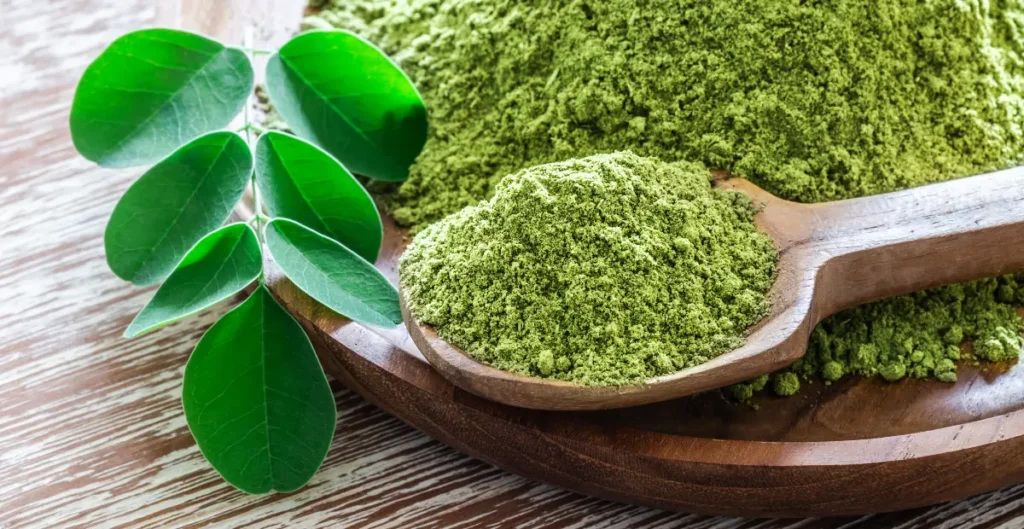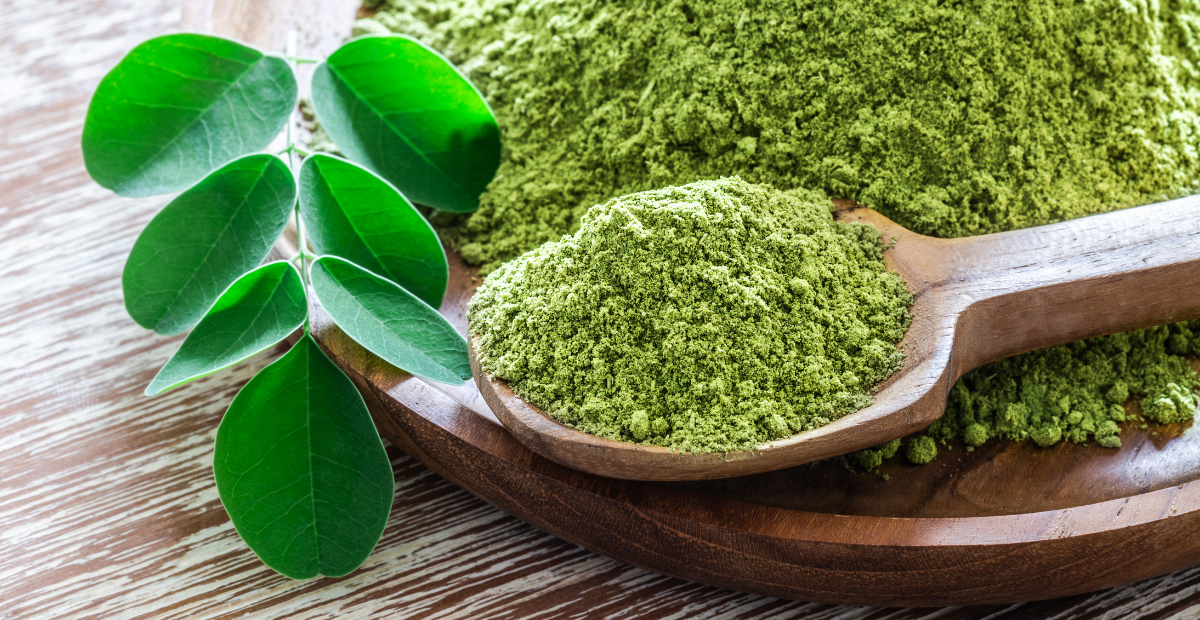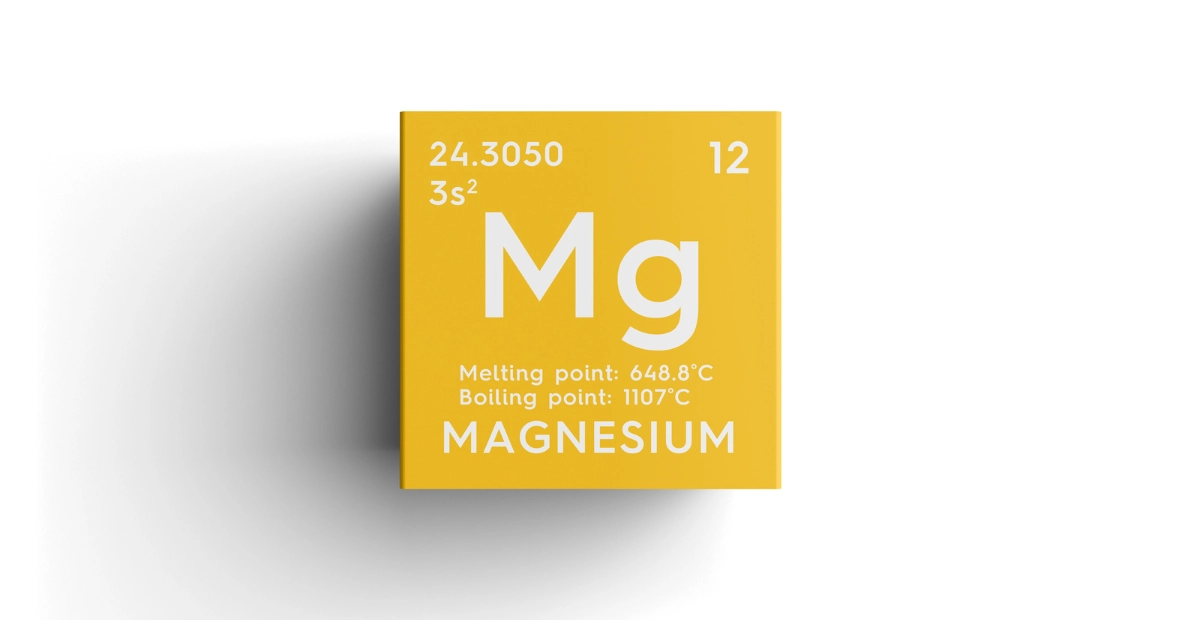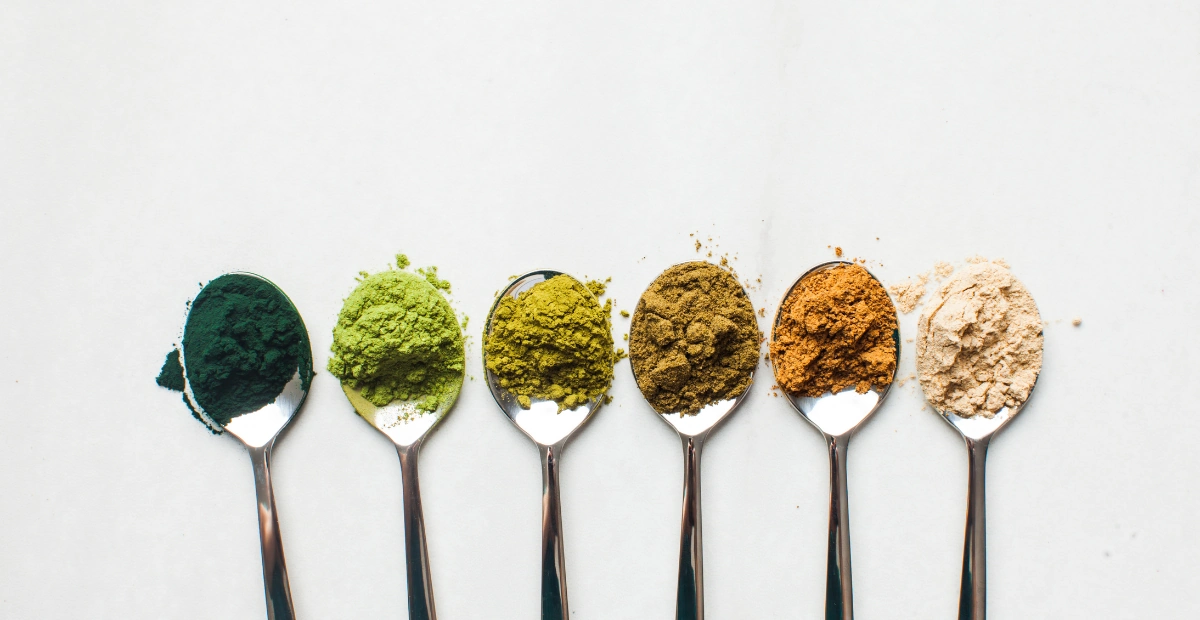Moringa Leaf Benefits: Nutrition, Health, & How to Use It
-
By: Nutra Guru
-
October 16, 2024
Moringa Leaf Benefits: Nutrition, Health, and How to Use It

Moringa, often referred to as the “miracle tree,” is one of the most nutrient-dense plants available. Known for its high levels of vitamins, minerals, and antioxidants, moringa leaf has been gaining popularity in the world of health and wellness. Whether you’re looking to boost your immune system, regulate blood sugar, or find a natural source of energy, moringa may be the perfect supplement to add to your routine. In this article, we’ll explore the benefits of moringa leaf, its nutritional profile, and how you can incorporate it into your daily life.
What is Moringa?
Moringa is a plant native to parts of Africa and Asia, particularly India. It’s been used for centuries in traditional medicine to treat various ailments. The most commonly used part of the plant is the moringa leaf, though the seeds, oil, and roots are also known for their medicinal properties. What makes moringa unique is the sheer concentration of nutrients it contains. It’s been called “the miracle tree” because of its potential to fight malnutrition and offer a wide range of health benefits.
The moringa leaf, available in powder, capsule, or tea form, is an incredibly versatile supplement. It can be consumed daily to boost nutrition, improve energy, and support overall health.
Moringa’s Nutritional Profile
One of the main reasons moringa is so popular is due to its impressive nutritional content. Here’s a breakdown of the key nutrients found in moringa leaves:
•Vitamins: Moringa is rich in vitamins A, C, and E. These antioxidants play a critical role in protecting the body from oxidative stress, supporting skin health, and boosting immunity.
•Minerals: The leaves are also packed with essential minerals like calcium, magnesium, potassium, and iron. For example, moringa contains 4 times more calcium than milk and 3 times more iron than spinach.
•Protein: Moringa is surprisingly high in protein for a plant-based food, containing all nine essential amino acids. This makes it a complete protein source, particularly useful for vegetarians and vegans.
•Antioxidants: Moringa’s antioxidant properties are primarily attributed to compounds like quercetin and chlorogenic acid, which help reduce inflammation and protect against free radical damage.
Nutritional Comparison
Compared to other leafy greens, moringa provides more vitamins and minerals. For example, it has 7 times more vitamin C than oranges and more beta-carotene than carrots, making it an incredibly nutrient-dense option for supplement users.
Key Health Benefits of Moringa Leaf
Immune Support
Moringa’s high levels of vitamin C and E, along with other antioxidants, make it an excellent choice for supporting immune health. These vitamins are essential for fighting off oxidative stress, which can weaken the immune system. Studies have shown that regular consumption of moringa may help improve immune response by providing the body with the necessary nutrients to fight infections and illness.
Blood Sugar Regulation
One of the most exciting benefits of moringa is its potential to help regulate blood sugar levels. Several studies have highlighted moringa’s ability to lower blood sugar, making it a valuable tool for managing diabetes. The plant contains isothiocyanates, which may help reduce insulin resistance and improve glucose tolerance. According to a study published in the Journal of Food Science and Technology, moringa supplementation significantly lowered fasting blood sugar levels in participants with type 2 diabetes.
Anti-Inflammatory Properties
Chronic inflammation is linked to many serious health conditions, including heart disease, cancer, and arthritis. Moringa contains powerful anti-inflammatory compounds, such as isothiocyanates, which can help reduce inflammation in the body. Regular consumption of moringa can be beneficial for people suffering from chronic inflammatory conditions like arthritis. The antioxidants in moringa, particularly quercetin, also contribute to its anti-inflammatory effects.
Heart Health
Moringa’s high potassium content helps support heart health by regulating blood pressure. Potassium is vital for maintaining the balance of fluids in the body and ensuring that the heart functions properly. Additionally, the anti-inflammatory properties of moringa can help reduce the risk of heart disease by lowering inflammation in the arteries.
Skin Health
Moringa’s rich antioxidant content makes it a great natural remedy for skin health. The vitamin C found in moringa plays a crucial role in collagen production, which keeps skin firm and youthful. Additionally, vitamin E helps reduce the appearance of scars and blemishes by promoting skin healing. Studies have also shown that moringa’s anti-inflammatory properties can help reduce acne and other skin conditions caused by inflammation.
Energy Boost
Unlike artificial energy boosters, moringa provides a natural and sustained energy boost. Its high iron content supports oxygen transportation in the blood, which helps to maintain energy levels throughout the day. Moringa is a popular choice for those who experience fatigue or low energy, as it provides a more stable, long-lasting form of energy compared to caffeine or sugary energy drinks.
How to Use Moringa
Moringa comes in several forms, including powder, capsules, and tea. Here are some practical tips on how to incorporate moringa into your daily routine:
•Moringa Powder: This is the most common form and can easily be added to smoothies, juices, or sprinkled on food. The recommended dose is usually 1-2 teaspoons per day.
•Moringa Capsules: If you prefer convenience, moringa capsules are a great option. They provide a measured dose of moringa without the need to mix powders.
•Moringa Tea: Another simple way to enjoy moringa is in tea form. You can steep dried moringa leaves in hot water for a refreshing, nutrient-packed drink.
When purchasing moringa, always opt for organic and high-quality products to ensure you’re getting the maximum health benefits. Look for reputable brands that provide lab-tested, additive-free supplements.
Potential Side Effects and Risks
Moringa is generally safe for most people when consumed in appropriate amounts. However, some individuals may experience mild side effects, especially when taking high doses. These side effects can include:
•Stomach upset
•Diarrhea
•Nausea
It’s always best to start with a smaller dose and consult with your healthcare provider if you are pregnant, breastfeeding, or on medication, as moringa can interact with certain medications like blood thinners.
FAQ: Common Questions About Moringa Leaf Benefits
1. What are the main benefits of moringa leaf?
Moringa leaf is packed with vitamins, minerals, and antioxidants that support immune health, regulate blood sugar, reduce inflammation, and improve skin health.
2. How should I take moringa?
Moringa can be taken in powder, capsule, or tea form. The easiest way to incorporate it into your routine is to add moringa powder to smoothies or take capsules.
3. Can moringa help with weight loss?
Yes, moringa’s high fiber content can promote feelings of fullness, which may aid in weight management. It also helps regulate blood sugar, which plays a role in controlling hunger and cravings.
4. Are there any side effects of moringa?
Some individuals may experience mild side effects such as stomach upset or diarrhea, especially when taking high doses. It’s best to start with small amounts.
5. Is moringa safe for pregnant women?
Pregnant or breastfeeding women should avoid moringa unless directed by their healthcare provider. Certain parts of the plant, like the roots, may not be safe during pregnancy.
6. How does moringa compare to other supplements?
Moringa is one of the most nutrient-dense supplements available, offering more vitamins and minerals than many other herbal supplements. Its complete protein profile also makes it unique compared to other plant-based options.
7. Where can I buy moringa supplements?
You can find moringa supplements in health food stores, online retailers, and specialty shops. Always choose organic, lab-tested brands for the highest quality.
Conclusion
Moringa is an incredibly powerful supplement with a wide range of health benefits. Whether you’re looking to boost your immune system, support heart health, or enhance your skin’s appearance, moringa is a versatile and natural option. Its nutrient-dense profile makes it one of the best choices for anyone looking to improve their overall well-being. Consider adding moringa to your daily routine and experience the benefits of this remarkable plant for yourself.
External Links for Further Reading
•WebMD – Moringa Overview – Moringa benefits and side effects
•Healthline – Moringa Benefits – Moringa health benefits
•NIH Study on Moringa – Research on moringa’s nutritional and medicinal properties





